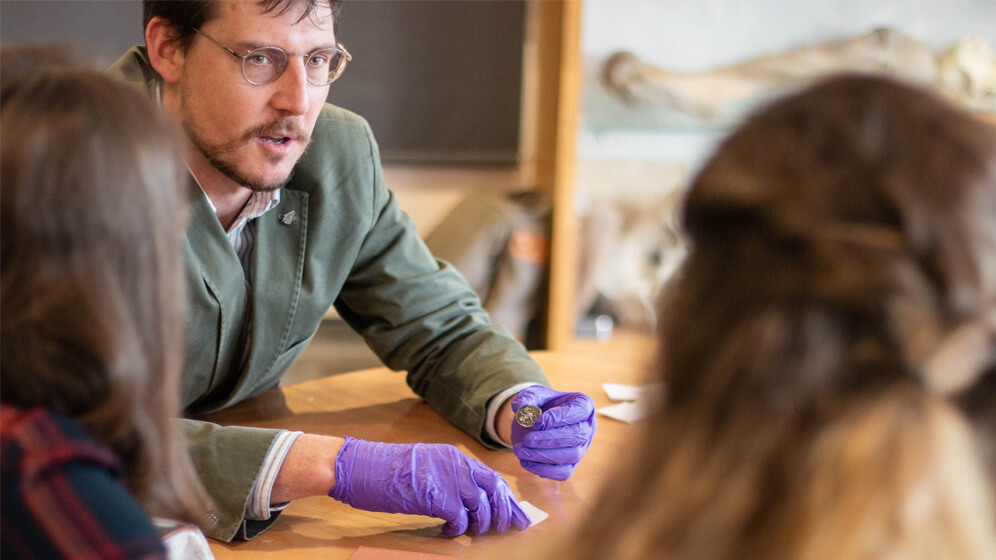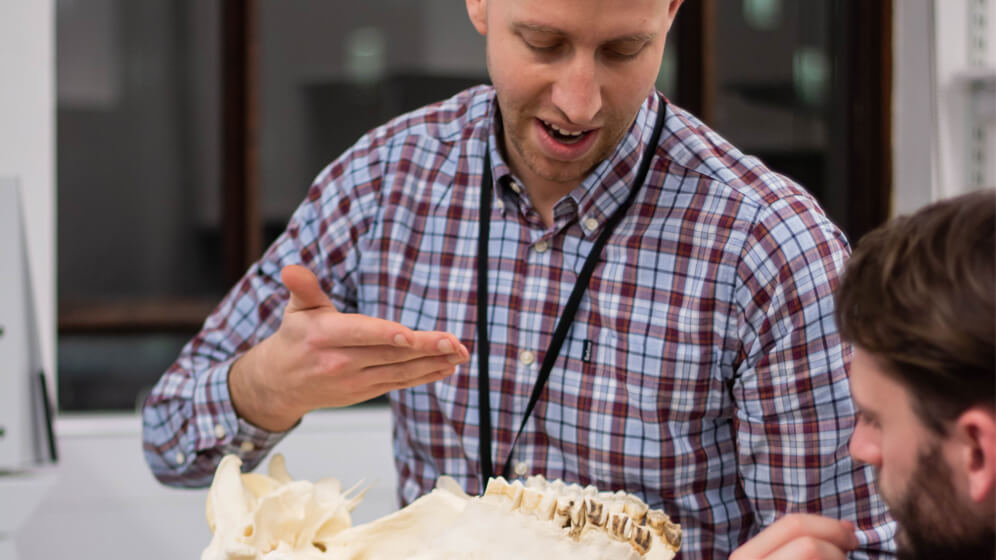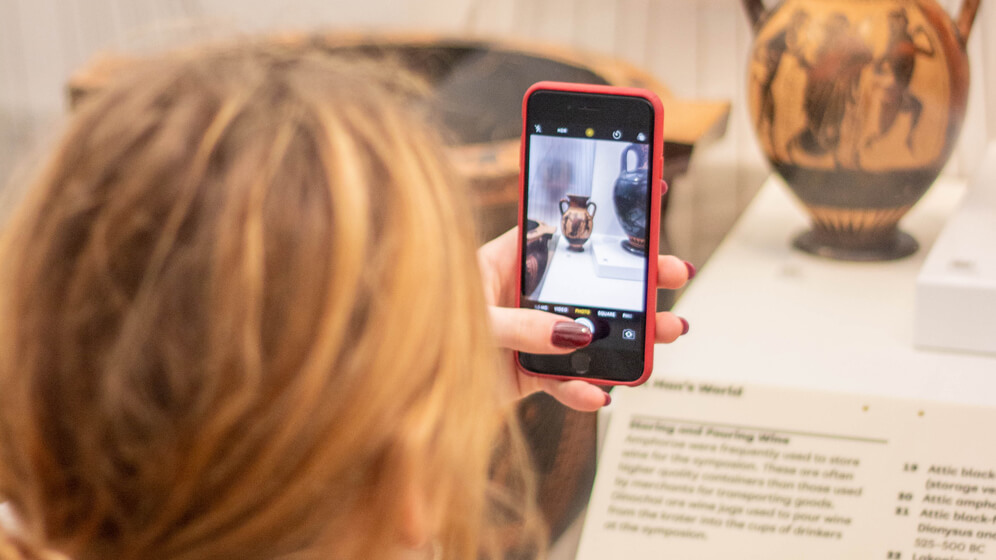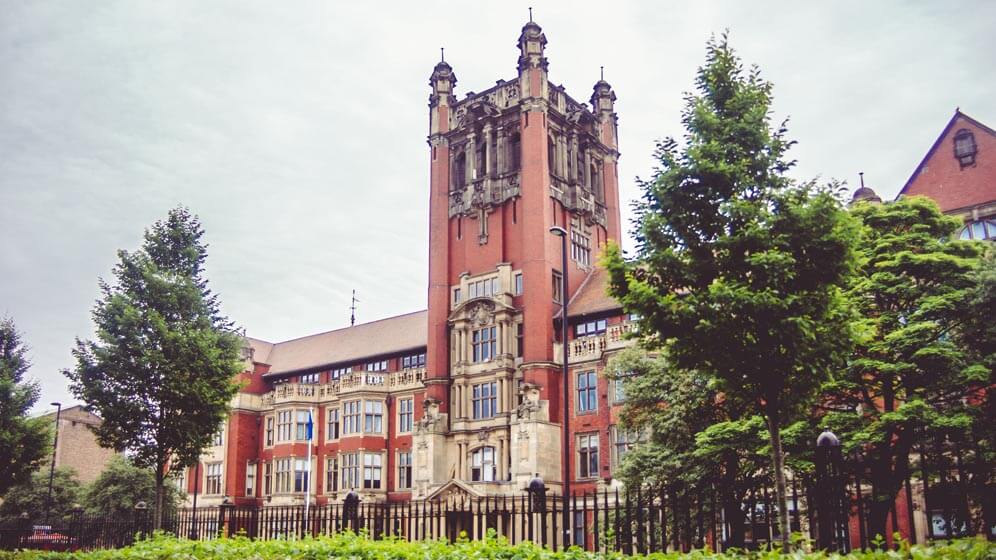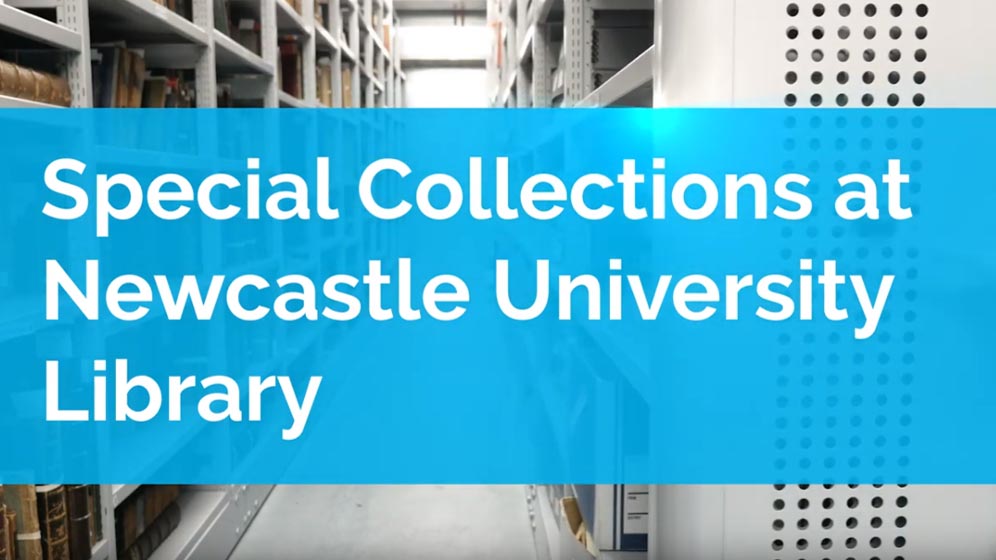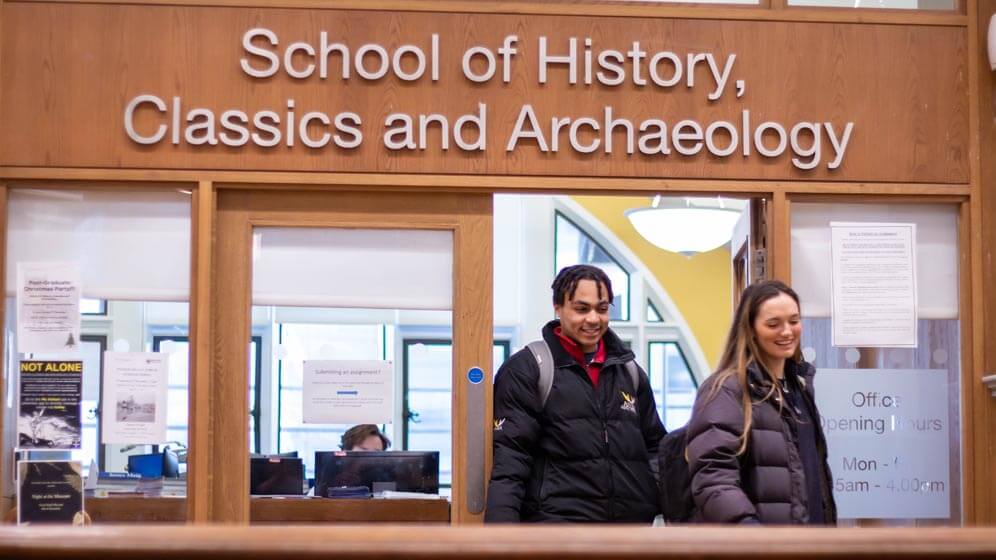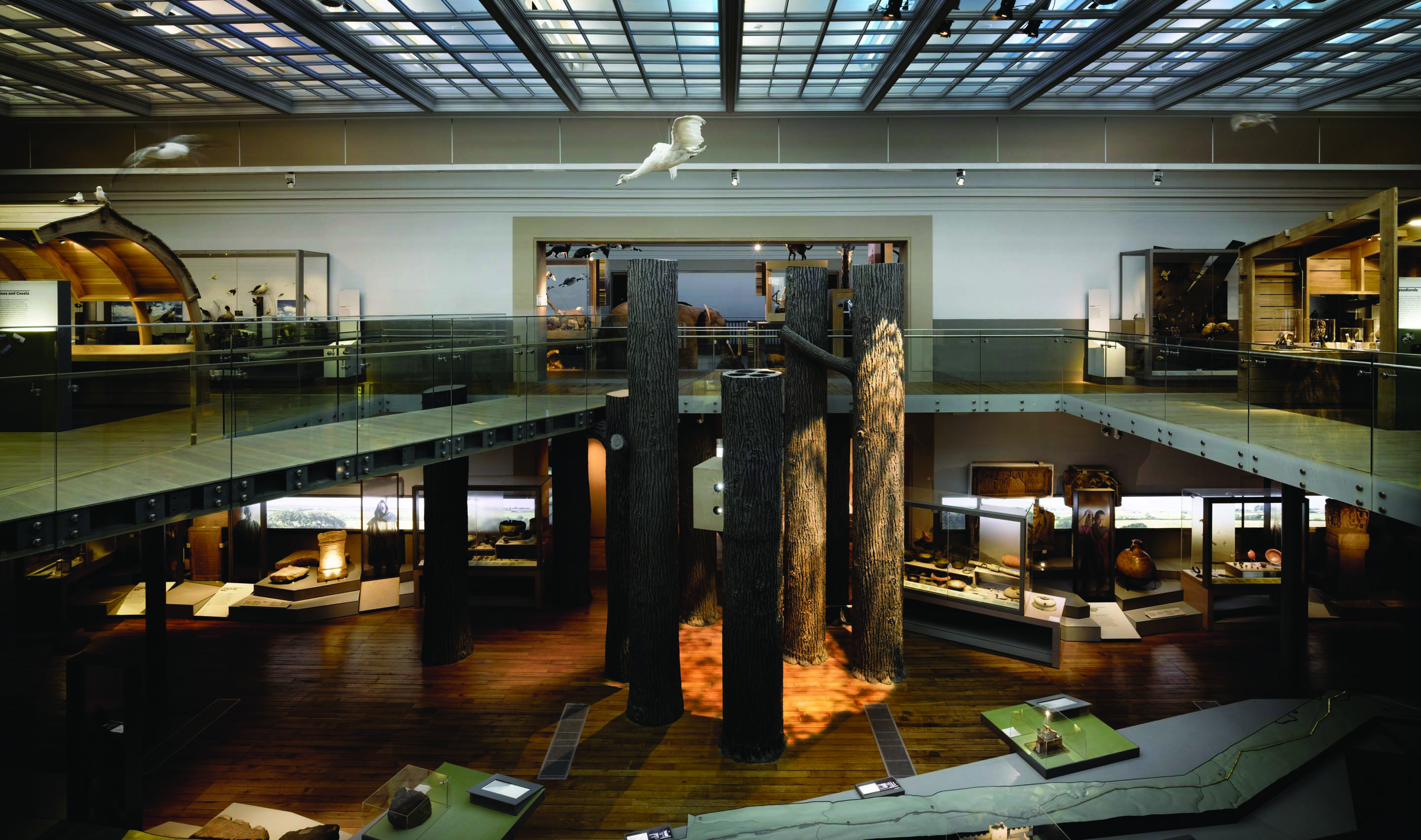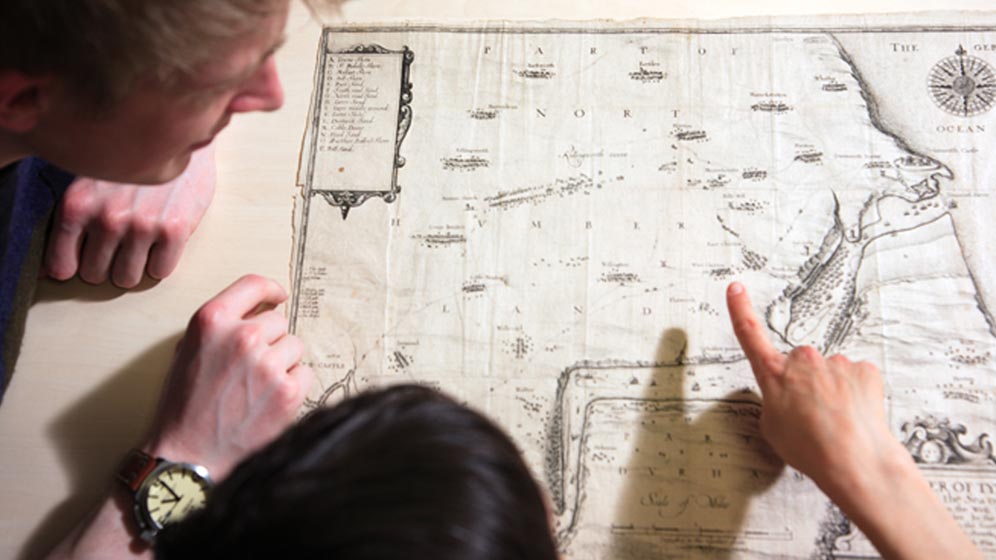History and Archaeology BA Honours
- UCAS code: VV41
- Full time
- 3 years
This History and Archaeology degree will give you a unique insight into the human past, studying material culture alongside written history.
You are currently viewing course information for entry year: 2026
Next start date:
- September 2026
UCAS Institution name and code:
- NEWC / N21
Course overview
Our History and Archaeology BA (Hons) degree is accredited by the Chartered Institute for Archaeology (CIfA) and University Archaeology UK (UAUK).
This three-year degree focuses on developing your expertise and skills for your future career.
You're introduced to new peoples, places and periods from across the globe. You'll explore how archaeology and history has changed our understanding of the past and its impact upon the present.
Our flexible degree allows you to tailor your course to suit your interests. You can explore the periods and regions that excite you through a wide range of modules.
You'll also have opportunities to explore North East England, a region that's steeped in history while on field trips. There's a rich past to discover here, from Hadrian’s Wall through to post-industrial landscapes.
Your course and study experience - disclaimers and terms and conditions
Please rest assured we make all reasonable efforts to provide you with the programmes, services and facilities described. However, it may be necessary to make changes due to significant disruption, for example in response to Covid-19.
View our Academic experience page, which gives information about your Newcastle University study experience for the academic year 2025-26.
See our terms and conditions and student complaints information, which gives details of circumstances that may lead to changes to programmes, modules or University services.
Quality and ranking
Professional accreditation and recognition
All professional accreditations are reviewed regularly by their professional body.
Modules and learning
Modules
The information below is intended to provide an example of what you will study.
Most degrees are divided into stages. Each stage lasts for one academic year, and you'll complete modules totalling 120 credits by the end of each stage.
Our teaching is informed by research. Course content may change periodically to reflect developments in the discipline, the requirements of external bodies and partners, and student feedback.
Optional module availability
Student demand for optional modules may affect availability.
Full details of the modules on offer will be published through the Programme Regulations and Specifications ahead of each academic year. This usually happens in May.
To find out more please see our terms and conditions
You'll learn the essential theories, methods and practical skills used in archaeology and history.
In the module Evidence and Argument you will work closely with one of our academics to study a historical debate in detail to start building your skills as a historian.
You'll take two compulsory modules in Archaeology to introduce you to Archaeology as a discipline. You'll also explore the archaeology of Britain from the Roman age through to the 20th Century.
A range of optional modules include Global Middle Ages, Greek and Roman Art, and Archaeology and pre-historic Britain. At the end of Year 1 you complete at least two weeks’ excavation fieldwork.
Modules
| Compulsory Modules | Credits |
|---|---|
| Introduction to Archaeology | 20 |
| The Archaeology of Britain from the Romans to the 20th Century | 20 |
| Evidence and Argument | 20 |
You continue to explore archaeological methods in the compulsory Fieldwork and Post-Excavation module.
Start developing your skills in independent research in modules such as Crafting or Research History and choose from topical options in both history and archaeology.
We also continue to offer interdisciplinary modules bringing together History and Archaeology such as in The Mediterranean: a connected past.
You will also complete two weeks of fieldwork at the end of Year 2.
Modules
| Compulsory Modules | Credits |
|---|---|
| Fieldwork and Post-Excavation: Archaeology in the UK | 20 |
In Stage 3, you'll complete a dissertation in archaeology, history or a combination of both, conducting in-depth research.
You will have a wide choice of optional modules across both archaeology and History drawing on the diverse range of research expertise of our academic staff.
Modules
Compulsory modules
Modules
We base these figures and graphs on the most up-to-date information available to us. They are based on the modules chosen by our students in 2024-25.
Teaching time is made up of:
- scheduled learning and teaching activities. These are timetabled activities with a member of staff present.
- structured guided learning. These are activities developed by staff to support engagement with module learning. Students or groups of students undertake these activities without direct staff participation or supervision
Teaching and assessment
Teaching methods
You'll learn from:
- lectures
- seminars
- tutorials
- workshops
- practical activities
- site visits and fieldwork training
- independent study
Assessment methods
You'll be assessed through a combination of:
-
Dissertation or research project
-
Essays
-
Examinations – practical or online
-
Presentations
-
Reports
Skills and experience
Practical skills
You will analyse documentary sources and take part in practical sessions using the Robinson Library’s Special Collections, and have opportunities to handle historical artefacts from the nearby Great North Museum's collections.
You'll also undertake excavation fieldwork, giving you the chance to study and implement the methods and practices used in the profession.
In the summer after first year, archaeology students have the opportunity to undertake two weeks of fully funded fieldwork.
Research skills
In your final year, you'll write your dissertation in an area of your choice. You can choose to specialise more closely in archaeology or history, or can combine the two.
You'll make use of the skills you've gained throughout your degree, and conduct your own research project in your final year. This gives you the chance to dig deeper into a subject you're interested in.
Opportunities
Study abroad
Experience life in another country by choosing to study abroad as part of your degree. You’ll be encouraged to embrace fun and challenging experiences, make connections with new communities and graduate as a globally aware professional, ready for your future.
You can choose to spend up to a year studying at a partner institution overseas.
If you choose to study abroad, it will extend your degree by a year.
Find out more about study abroad
Work placement
Get career ready with a work placement and leave as a confident professional in your field. You can apply to spend 9 to 12 months working in any organisation in the world, and receive University support from our dedicated team to secure your dream placement. Work placements take place between stages 2 and 3.
You'll gain first-hand experience of working in the sector, putting your learning into practice and developing your professional expertise.
If you choose to take a work placement, it will extend your degree by a year, and your degree title will show you have achieved the placement year. A work placement is not available if you're spending a year studying abroad. Placements are subject to availability.
Facilities and environment
Facilities
You'll be based in the School of History, Classics and Archaeology, in the historic Armstrong Building at our city-centre campus.
You'll have access to a range of on-campus facilities, including:
- the Philip Robinson University Library, which houses over 800,000 books and provides access to ca. 1.8m e-books
- Special Collections & Archives – a rich collection of archival material, historical medical texts and rare books
- The Great North Museum: Hancock, our on-campus museum which holds an extensive collection of Greek, Roman, and Etruscan artefacts
Find out more about the School of History, Classics and Archaeology
Support
You'll have the support of an academic member of staff as a personal tutor throughout your degree to help with academic and personal issues.
Peer mentors will help you in your first year. They are fellow students who can help you settle in and answer any questions you have when starting university.
Your future
Our History and Archaeology degree will set you up to pursue a future in a diverse range of careers, be that professional archaeology, careers in the heritage or charity sectors, journalism, policy and researcher roles or even finance and legal professions.
Make a difference
Sorry, you need JavaScript to view this video
Careers support
Our Careers Service is one of the largest and best in the country, and we have strong links with employers. We provide an extensive range of opportunities to all students through our ncl+ initiative.
Visit our Careers Service website
Recognition of professional qualifications outside of the UK
If you’re studying an accredited degree and thinking about working in Europe after you graduate, the best place to find current information is the UK Government’s guidance on recognition of UK professional qualifications in EU member states. This official resource explains whether your profession is regulated in another country, what steps you need to take, and which organisation you should contact.
Entry requirements
All candidates are considered on an individual basis and we accept a broad range of qualifications.
The entrance requirements and offers below apply to 2026 entry.
| A-Level | |
|---|---|
| International Baccalaureate | |
|---|---|
Other UK and the Republic of Ireland qualifications
Alternative offers at Newcastle
Through one of our contextual or alternative offer routes, you could receive an offer of up to three grades lower than the typical requirements.
Contextual offers
We use certain contextual data from your UCAS form, alongside your application, to consider challenges that you may have faced in your education and the potential effect this may have had on your qualifications. This means you may be eligible to receive a lower contextual offer.
PARTNERS offers
One of the largest and longest support entry routes to university of its kind for students from underrepresented backgrounds. We support applicants from application through to study.
Realising Opportunities offers
A unique programme delivered in collaboration with 10 leading, research-intensive universities in the UK. The programme is open to students in Year 12/first year of college.
Pathways to Newcastle offers
Pathways to Newcastle, our national skills entry route, is available for specific subject areas.
High Performance Athletes
We support promising athletes at the application stage, who compete in regional, national or international levels in their sport.
Qualifications from outside the UK
English Language requirements
Entrance courses (INTO)
International Pathway courses are specialist programmes designed for international students who want to study in the UK. We provide a range of study options for international students in partnership with INTO.
These courses are specifically designed for international students who want to study in the UK and progress onto one of our undergraduate degrees. Our International Study Centre, has a range of study options including:
- International Foundation
- International Year One
- English Language courses
Find out more about International Pathway courses
Admissions policy
This policy applies to all undergraduate and postgraduate admissions at Newcastle University. It is intended to provide information about our admissions policies and procedures to applicants and potential applicants, to their advisors and family members, and to staff of the University.
University Admissions Policy and related policies and procedures
Credit transfer and Recognition of Prior Learning
Recognition of Prior Learning (RPL) can allow you to convert existing relevant university-level knowledge, skills and experience into credits towards a qualification. Find out more about the RPL policy which may apply to this course.
Tuition fees and scholarships
Tuition fees for academic year 2026-2027
The 2026 entry home fees have not yet been confirmed.
| Qualification: BA Honours | |
|---|---|
|
Home students full time 3 years |
Tuition fees (Year 1)
Not set |
|
International students full time 3 years |
Tuition fees (Year 1)
25,000 |
Year abroad and additional costs
For programmes where you can spend a year on a work placement or studying abroad, you will receive a significant fee reduction for that year.
Some of our degrees involve additional costs which are not covered by your tuition fees.
Scholarships
Find out more about:
Open days and events
You'll have a number of opportunities to meet us throughout the year at our on-campus and virtual open days.
You'll be able to:
- explore our beautiful campus
- find out about our vibrant city
- discover what students think about studying at Newcastle
You'll also have the opportunity to speak to academic staff and find out more about the subjects you're interested in.
Find out about how you can visit Newcastle in person and virtually.
We regularly travel overseas to meet with students interested in studying at Newcastle University. Visit our events calendar to find out when we're visiting your region.
How to apply
Apply through UCAS
To apply for undergraduate study at Newcastle University, you must use the online application system managed by the Universities and Colleges Admissions Service (UCAS). All UK schools and colleges, and a small number of EU and international establishments, are registered with UCAS. You will need:
- the UCAS name and institution codes for Newcastle University (NEWC/N21)
- the UCAS code for the course you want to apply for
- the UCAS 'buzzword' for your school or college
If you are applying independently, or are applying from a school or college which is not registered to manage applications, you will still use the Apply system. You will not need a buzzword.
Apply through UCASApply through an agent
International students often apply to us through an agent. Have a look at our recommended agents and get in touch with them.
Get in touch
By phone
Call us on +44 (0) 191 208 3333 and press option 1. Our opening hours are Monday to Friday 10am until 4pm.
Live chat
Our NCL chatbot might be able to give you an answer straight away. If not, it’ll direct you to someone who can help.
You'll find our NCL chatbot in the bottom right of this page.
Online
Chat to our students
Choosing a university is a big decision. If you've got questions about a particular course, student life or the city of Newcastle, why not chat to our friendly students or graduates!
Keep updated
We regularly send email updates and extra information about the University.
Receive regular updates by email